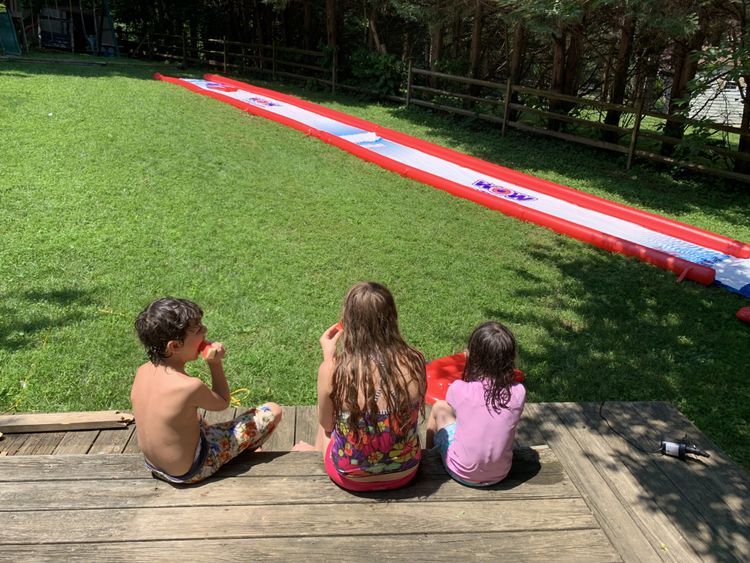Teaching our daughters self-worth

Letting her define herself
“What? I didn’t mean it like that. Or are you spending too much time with your mom?” He asked when my daughter looked up from her school-assigned laptop. The teacher had just given a deep beleaguered sigh, and my daughter caught it. She never said a word, but the teacher became immediately defensive.
I don’t proclaim to be a parenting guru. But as an educator and parent to four children from elementary school to high school and one with special needs, I have experience teaching children to advocate for themselves.
As an educator, I support teachers. I advocate for teachers at board meetings, send emails to teachers and their administration sharing the tremendous work they do in and out of the classroom, volunteer, and have been in the trenches.
Whenever there is a homework question, low test scores, missing assignments, and whatever else pops up on my mommy/teacher radar, I encourage my children to discuss it with their teacher. I rarely, if ever, contact a teacher about an issue. I believe that self-advocacy from the child goes a long way. I also teach my children to find the helpers: a school counselor, their case manager, or another teacher if they need help advocating for themselves. It’s a good soft skill.
On this particular day, my daughter came home and told me about her interaction with one of her teachers.
Um, excuse me, what? (Okay what I really thought was WTF, but I couldn’t say that aloud to my 13 year old, could I?). The interaction was so unprofessional. Situations like this make it difficult for me not to step in and contact the teacher directly. Like why you comin’ at me bro? Why was he taking a swing at me through my daughter? I was baffled and angry that he put my daughter in the middle of some weird ego-laden beef with me, especially since I haven’t interacted with the teacher all year long. Not once.
After a couple of deep breaths and a whole lotta bad words running through my head, I asked my daughter if she wanted me to contact her teacher. And she looked me deadass in the eyes and said, “Nope. His opinion of me does not define my self-worth.” Mic drop.
His opinion of me does not define my self-worth
So how did my daughter get here? Because I feel like it’s taken me a lifetime to get to the same place and I don’t always find myself there. I still have nagging doubts about myself; but not my daughter. She exudes a quiet confidence that I hope to emulate often.
- Love and acceptance begin at home. My daughter knows that she is loved and accepted in our family. Home is her safe space when she needs it. We all make mistakes. We are not perfect. As my kids’ kindergarten teacher has taught them: Practice makes better.
- Team sports. We have encouraged our daughter to participate in team sports. She has played soccer since she was five years old. She still plays for the local rec team, where points don’t matter, and her middle school team, where points do. She also swims for the neighborhood swim league. She’s learned to work together to score or defend a goal. And she’s learned about healthy competition. Even if you are swimming against your friend to get first place, you congratulate one another no matter the outcome. Sometimes the best feeling is watching your friends succeed.
- No navel gazing here. Our family motto is “We are called to serve one another.” (Hat tip to my neighbor for sharing these words of wisdom with me). It’s not always about us, what we want, and we don’t do things for recognition. We are called to help one another. It takes different forms: stocking the local food pantry, participating as mentors for students who need more educational support, or being a kindergarten reading buddy at school. It comes down to, How can you help your fellow human?
I don’t have all the answers. I never do. But I do know that cultivating a healthy sense of self-worth will carry our children further in life. The less we worry about people’s opinions about us, the more good we can do.
Grow the good.
And just in case you think she hasn’t thought about how to respond to her teacher, she was already 2 steps ahead of me.
When I asked if I should say anything to her teacher if I saw him while volunteering in her school, she smirked and said, “Nah. Just smile at him. It will drive him nuts thinking we’re talking about him when we’re not. The less we say to him, the better.” And then we perfected our synchronized smile and wave routine.




